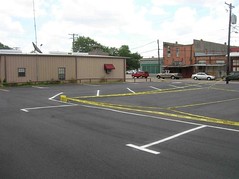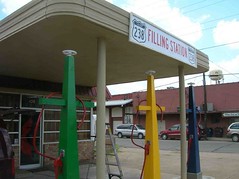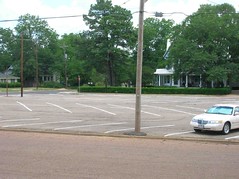Outreach Magazine features an article on the crisis in the American church. Since their focus is evangelism and church growth, the crisis under consideration is the decline in church attendance across the country and a failure in every state but one (Hawaii) for church attendance to keep up with population growth. Here are their "Seven Startling Facts"
1. Less than 20% of Americans regularly attend church—half of what the pollsters report.
This is old news. The root problem is that people lie - or fudge the facts. Pollsters ask, "Were you in church Sunday," and since they know the right answer is "Yes," they give it, even if it's been a week or two or ten since they were in church. The upside to this bad news is that we have plenty of prospects out there who, though they might be something else by excuse, aren't actually participating anywhere. Instead if asking, "What church are you a member of?" We need to learn to ask, "What church do you regularly attend?" Even better, since lots of people will see no difference between the questions, is to just invite people with no reference to where they go or don't go - unless you know them to be active somewhere.
2. American church attendance is steadily declining.
You know what this means, don't you? Not only are we failing to keep up with a growing population, but we're also not even keeping our own. Now it may be the case that in a denomination full of senior citizens, that saints being "promoted to glory" is the problem. I think the even greater problem is that when our churches have children (many small churches don't) we're doing a poor job of discipling them and keeping them.
3. Only one state is outpacing its population growth.
That's where Hawaii comes in. Texas is at only 18% of the population in attendance.
4. Mid-sized churches are shrinking; the smallest and largest churches are growing.
By their reckoning we're a mid-sized church. We're growing. But I can feel us fighting our way against the current.
5. Established churches—40 to 190 years old—are, on average, declining.
We're 150 next year. Established churches have a strong base of "We've never done it that way before" that stifles innovation. They also tend to have so many established networks of members that they know fewer non-Christians to invite. Again, we're fighting upstream.
6. The increase in churches is only 1/4 of what’s needed to keep up with population growth.
We need more new churches. Bishop Huie wants us to plant 10 new churches a year in the bounds of the Texas Conference. (The Chappell Hill community out near NTCC main campus might be a possible site in our mostly rural area.)
7. In 2050, the percentage of the U.S. population attending church will be almost half of what it was in 1990.
I'm not content to let this happen. If it were only about keep an institution going, I wouldn't mind so much. But Jesus died for these people! The bible tells us Jesus said, "No one comes to the Father apart from me." On the off chance Jesus actually said that, AND that he knew what he was talking about, we have a pile of work to do.



 While the parking lot workers were in our vicinity, the trustees got them to go ahead an paint the stripes on the parking lot at Butcher Boy. The old ones were mighty faint. See how these look.
While the parking lot workers were in our vicinity, the trustees got them to go ahead an paint the stripes on the parking lot at Butcher Boy. The old ones were mighty faint. See how these look.


